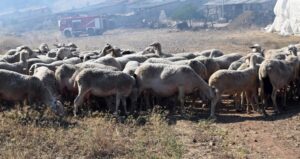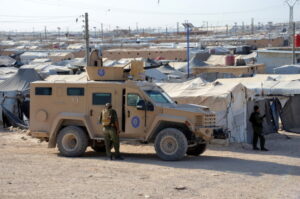The livestock industry in the country has been hit with a second blow. Following the outbreak of plague among sheep and goats, farmers are now facing sheep and goat pox, a disease even harder to eradicate. An animal can contract pox up to six months after the onset of the disease, whereas with the plague, infection occurs within the first 72 hours.
This situation, along with the fact that since the disease first appeared in Evros last August, there have been 104 outbreaks across a wide area of the country, has led the Ministry of Rural Development to enforce stricter controls for pox compared to the plague.
As of today and for the next 10 days, the movement of herds is prohibited for any reason—whether for slaughter, grazing, or fattening.
What Concerns Authorities as They Search for the Cause of the Spread
When sheep and goat pox appeared in Evros in August, initial containment measures seemed to control the outbreak. Veterinary authorities, experienced in dealing with the disease, had successfully eradicated it twice in recent years. However, September revealed that the situation was not fully under control, as the disease spread to Komotini, Xanthi, Kavala, and Serres. Just yesterday, new cases were reported in Kanalia, Magnesia, and Stymphalia, Corinth.
In two months, there have been 104 outbreaks in total, resulting in the loss of over 17,500 animals that have already been culled. In Magnesia and Corinth, the same protocol as for the plague will be implemented. This involves two zones of surveillance and control, where livestock in these areas will be inspected. If positive samples are found, the animals will be culled.
The only silver lining in this difficult situation is that farmers will still be able to sell their milk, provided they follow the required disinfection measures.
How did the disease spread so quickly from Evros to Magnesia and Corinth? This is the question authorities must answer in the coming period to solve the mystery of the spread. They are currently investigating whether the spread occurred through the transport of infected animals or contaminated feed.
Until the cause of the spread is determined, authorities must ensure that no new outbreaks occur outside the controlled areas, which would make the situation even more difficult.
Meanwhile, farmers in affected areas are anxious as Christmas approaches, fearing they may not be able to sell their animals for slaughter, leading to a significant loss of income.
Ask me anything
Explore related questions





